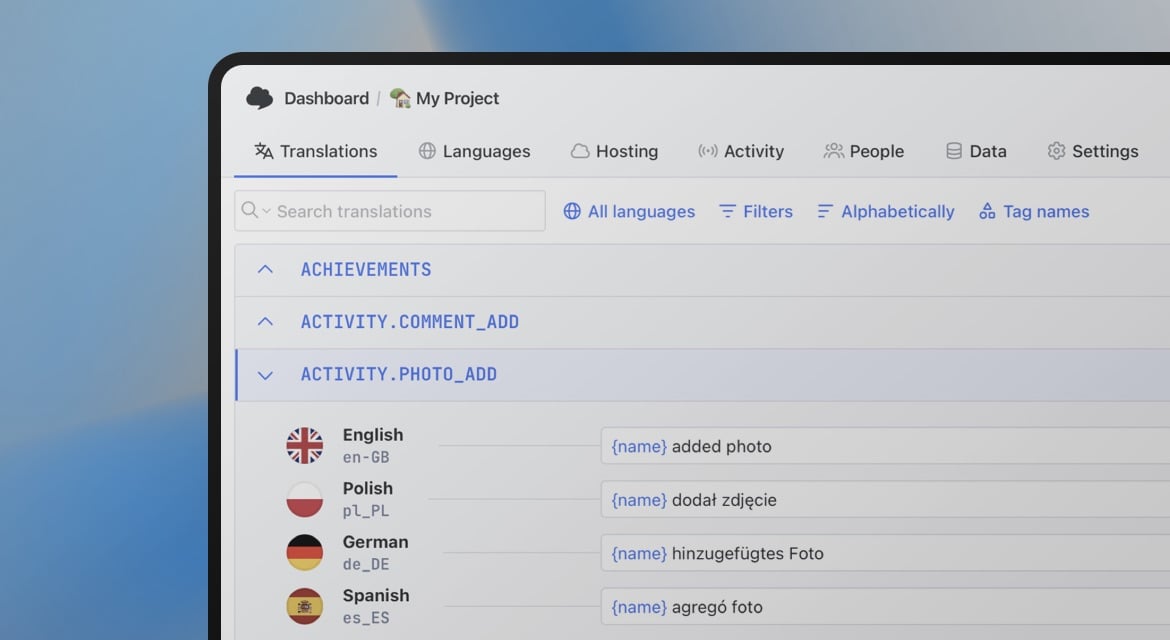
Locale Code: ln-CG
The locale code represents Lingala language in Republic of the Congo country.
See all locale codesTranslation Editor ✨
Save time on handling localization files and translation strings.
Try SimpleLocalizeGeneral
General information related to the locale code
| Property | Value |
|---|---|
| Country Name | Republic of the Congo |
| Country Name (Local) | Congo |
| Country Flag | 🇨🇬 |
| Country Area | 342000 km2 |
| Country Code (ISO 3166-1) | CG |
| Language Name | Lingala |
| Language Name (Local) | Lingála |
| Language Code (ISO 639-1) | ln |
| Continent | Africa |
| Region | Middle Africa |
| Capital Name | Brazzaville |
| Capital Latitude | -4.26613 |
| Capital Longitude | 15.28318 |
Currency
The currency used for the locale code ln-CG is Central African Franc.
| Property | Value |
|---|---|
| Currency Name | Central African Franc |
| Currency Name (Local) | Central African CFA franc |
| Currency Code | XAF |
| Currency Symbol | Fr |
| Currency Numeric | 950 |
| Currency Subunit Value | 0 |
| Currency Subunit Name |
Timezones
Republic of the Congo has one timezone with UTC offset UTC+01:00.
Borders
Republic of the Congo shares borders with 5 countries and it's not landlocked.
Get started with SimpleLocalize
- All-in-one localization platform
- Web-based translation editor for your team
- Auto-translation, QA-checks, AI and more
- See how easily you can start localizing your product.
- Powerful API, hosting, integrations and developer tools
- Unmatched customer support
"The product
and support
are fantastic."
"The support is
blazing fast,
thank you Jakub!"
"Interface that
makes any dev
feel at home!"
"Excellent app,
saves my time
and money"
What is 'ln-CG' locale code?
Every locale code is a unique identifier for a specific language and country (or region). It is used in software development to localize applications and websites. Locale code is a combination of ISO 639-1 language code and ISO 3166-1 country code. For example, ln_CG is a locale code for Lingala language in Republic of the Congo. Locale codes are used to define the language and country settings for date, time, currency, and number formatting. They are also used to translate user interfaces and messages in software applications. Locale codes are essential for building multilingual and internationalized software products. They are used in programming languages, frameworks, and libraries to provide internationalization and localization features. Locale codes are also used in databases, operating systems, and web browsers to provide language and country-specific settings. Locale codes are standardized by the International Organization for Standardization (ISO) and are widely used in software development.





